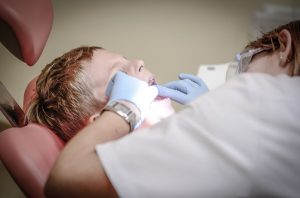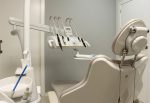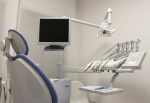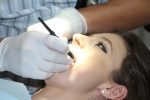
If we take a look at the American Dental Hygienists Association (ADHA) reports, we can notice that currently there are 335 accredited dental hygienist entry-level programs offered in the United States.
What is even better, you can enroll in an accredited dental hygienist program which is recognized by the American Dental Association (ADA) as programs that have received accreditation from the Commission on Dental Accreditation (CODA).
Those who wish to enroll in an entry-level dental hygiene program can choose among:
- 228 associate degree programs (A.S., A.A.S., and A.A.)
- 56 bachelor degree programs
- 8 certificate programs
There are also some programs that offer more than a one-degree option.
Those of you who choose to enroll in an associate degree in dental hygiene can attend classes through junior colleges, technical colleges/schools, and dental schools/academies, and will be offered formal education and on-site clinical and community-based experiences.
Both kinds of education are ideal to prepare future dental hygiene professionals for state licensure and become competent dental hygienists.
Once you manage to complete a dental hygiene program, you will be well equipped with knowledge and skills to do the following tasks:
- Give dental hygiene services according to the standards of care
- Combine knowledge you have gained from general education, basic science, and dental hygiene coursework
- Show your written, oral, and interpersonal communication skills
- Show skills in critical thinking, self-assessment, and problem-solving regarding dental hygiene
- Be ready to devote yourself to lifelong learning and further professional development
So as to be allowed to enroll in an entry-level dental hygiene program, you will need to meet the prerequisites for admission which include:
- Minimum combined SAT scores
- Completion of high-school level science and math courses with a minimum GPA
- Letter of recommendation from an employer, teacher, guidance counselor, etc.
- Personal essay
Furthermore, admission requirements for dental hygiene programs can also include:
- Medical and legal clearances such as child abuse clearance, criminal record check, urine drug screen, etc.
- Proof of current certification from an approved CPR course (adult, child, infant, and AED)
- Purchase of required supplies, such as uniform scrubs, instrument kits, shoes, textbooks, etc.
Entry-Level Dental Hygiene Programs
Entry-level programs in dental hygiene are either certificate, associate degree, or bachelor degree programs.
After finishing them, graduates are prepared for the clinical practice of dental hygiene.
An associate degree program consists of about 84 credit hours, while a bachelor’s degree in dental hygiene is quite longer and more demanding, so it requires the completion of about 118 hours.
Even though there are some dental hygiene programs that are offered as summer programs, most of them are actually semester-based programs.
Some programs offer the ability to their students to complete their dental hygiene program on a part-time basis.
Also, there is 29 percent of programs offering distance (online) learning.
Actually, master’s degree programs are the ones that offer distance learning.
For those who wish to continue their education and advance more, they should choose programs whose completion allows them to earn a bachelor’s degree in dental hygiene or a related area.
They can get a Bachelor of Science in Dental Hygiene Degree or a Bachelor of Science in Health Sciences or a Bachelor of Science in Allied Health.
Some of the general education courses include English, speech, psychology, and sociology.
However, more important are those science courses, such as anatomy, biochemistry, microbiology, physiology, nutrition, and pathology.
Dental science courses that students will need to take and pass are radiology, periodontology, dental materials, dental anatomy, head and neck anatomy, and pain control.
Advanced Degrees in Dental Hygiene
ADHA has done a survey which showed that around 75 percent of students enrolled in master’s degree programs in dental hygiene are interested in teaching.
More and more people decide to enroll in a master’s degree program in dental hygiene areas.
Master’s degrees are specially designed for individuals who would like to pursue careers in research, teaching, or clinical practice in schools and government health programs.
Students usually focus on the following areas throughout their master’s studies:
- Practice administration
- Finance and reimbursement
- Human resources
- Dental hygiene diagnosis and treatment planning
- Administration and monitoring of anesthesia
- Restorative techniques
According to the ADHA, various career paths are available for dental hygienists.
In case you are ready to take your career to the next level and continue your advancement through the completion of additional degrees, you can become:
- Corporate dental hygienist; positions may include:
- Sales representatives
- Product researchers
- Corporate educators
- Corporate administrators
- Dental hygienists in public health settings, such as community health programs funded by government and nonprofit organizations. Their aim is to provide dental care to people with limited means.
- Researchers: Dental health researchers are in charge of testing new procedures or products for effectiveness or accuracy.
- Educators: They are usually instructors in higher education institutions throughout the U.S. and they can be clinical instructors, program directors, classroom instructors, and corporate educators.
- Administrators: These dental hygienists can be clinical directors, programs directors, and deans of health sciences in an educational institution.








